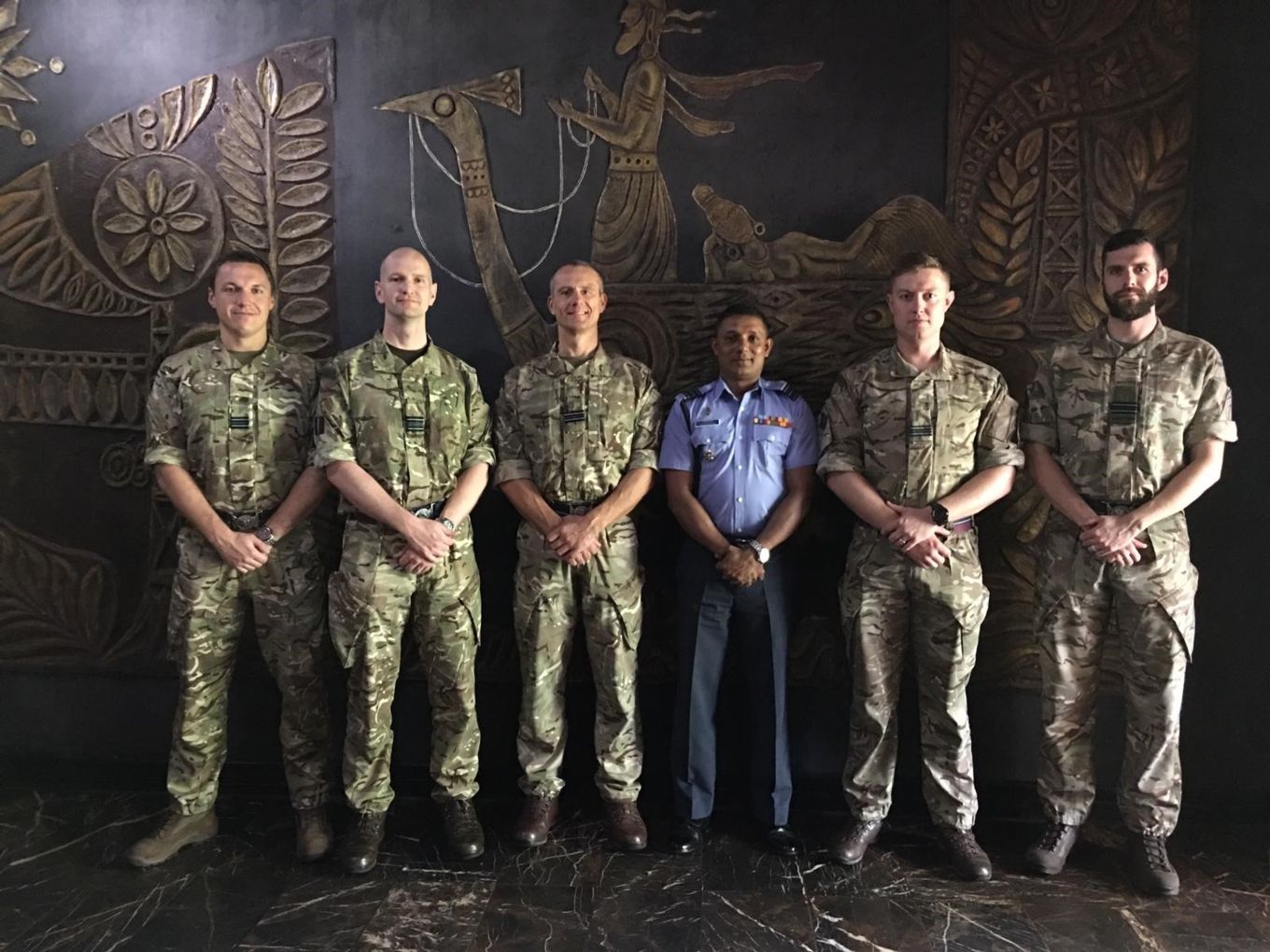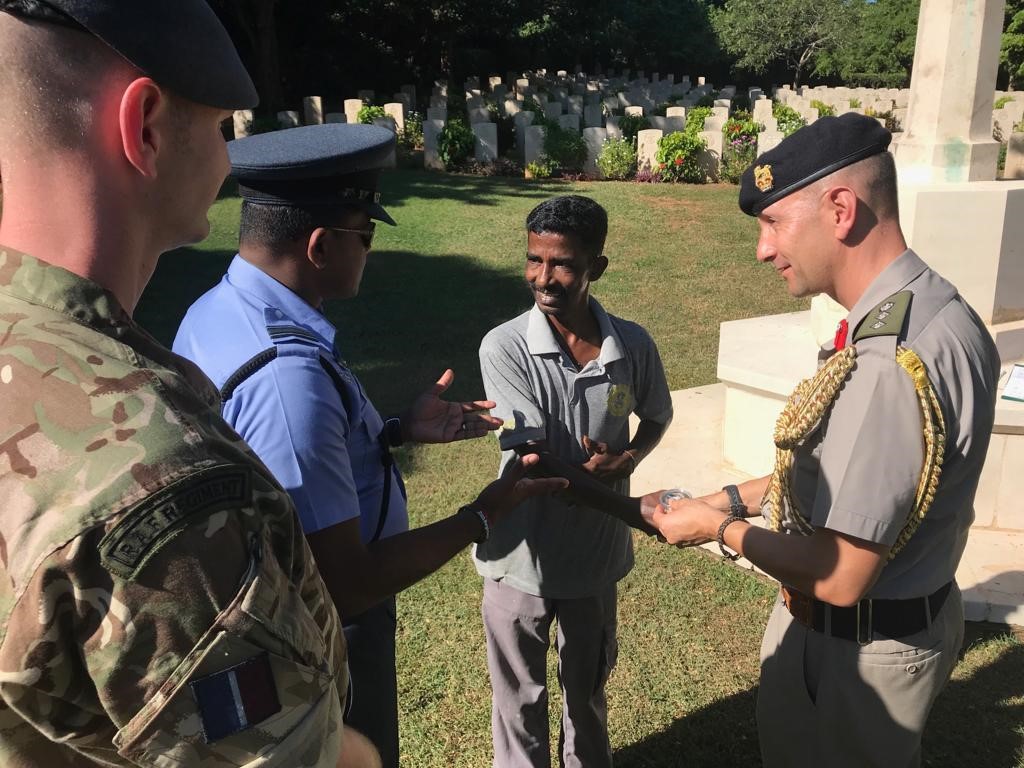
British troops from the Royal Air Force (RAF) were training Sri Lankan troops in Trincomalee last week, as the UK continues its military engagement with Sri Lanka despite concerns over human rights abuses.
An RAF Force Protection team delivered “a bespoke Force Protection Executives Course” to a Sri Lanka Air Force (SLAF) Regiment, according to an RAF press release.
“Defence Engagement is at the heart of strengthening the relationships we have with our international partners,” it continued. “The RAF Regiment can draw many parallels with the Sri Lankan Air Force (SLAF) Regiment. Our common heritages coupled with our common goal of providing world leading Air [Force Protection], has provided the foundation of a very fruitful exchange of knowledge, Tactics Techniques and Procedures (TTPs) and methodologies. This key component will help both our forces to better understand how to provide Air FP, to counter current and emerging threats.”
The press release also quoted several British soldiers, including RAF Police representative in the team Flight Lieutenant Orr, who said
“Establishing a bilateral partnership with the Sri Lankan’s has been both rewarding and productive. The similarities in doctrine between both the RAF and SLAF are stark; it has been hugely beneficial sharing our knowledge and training and the experiences we have had in Sri Lanka will not be forgotten.”
RAF Squadron Leader Dunne was quoted as saying,
“It’s a real honour to be able to exchange our practises with the SLAF. It is fascinating to see how many operational similarities we share and the opportunity to enhance our bond between our forces has been one of the best experiences in my career to date.”

Training locations included Sri Lanka’s air force base at China Bay in Trincomalee, which remains under military occupation despite over a decade since the end of the armed conflict. The area remains a target for intense Sinhalisation efforts.
The announcement that British troops are in Sri Lanka comes just days after Sri Lankan special forces completed a military training exercise in the UK. Though concerns remain over human rights abuses committed by Sri Lankan troops, the military continues to engage in relations with its counterparts across the world. The Sri Lankan military killed tens of thousands of Tamil civilians in an offensive a decade ago that saw hospitals shelled, widespread sexual violence and surrendering Tamils executed. No one has been held accountable for the crimes.
We need your support
Sri Lanka is one of the most dangerous places in the world to be a journalist. Tamil journalists are particularly at threat, with at least 41 media workers known to have been killed by the Sri Lankan state or its paramilitaries during and after the armed conflict.
Despite the risks, our team on the ground remain committed to providing detailed and accurate reporting of developments in the Tamil homeland, across the island and around the world, as well as providing expert analysis and insight from the Tamil point of view
We need your support in keeping our journalism going. Support our work today.
For more ways to donate visit https://donate.tamilguardian.com.

